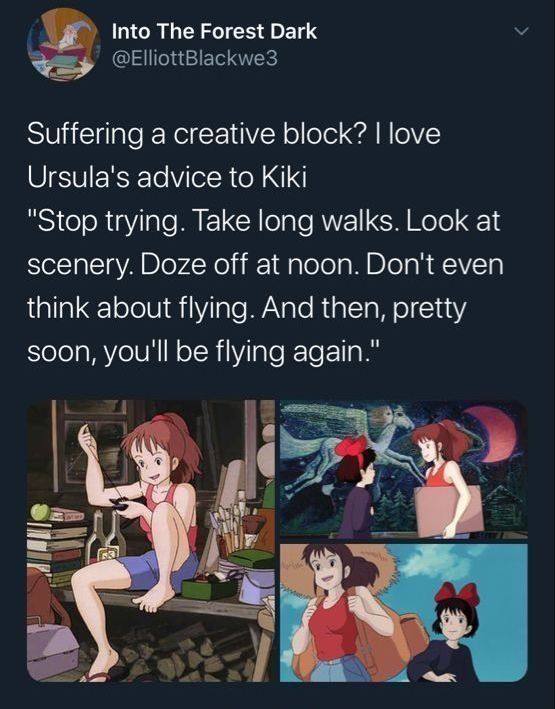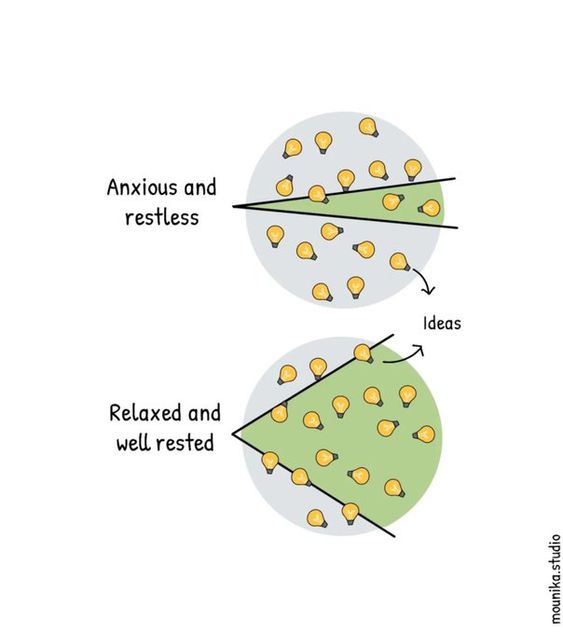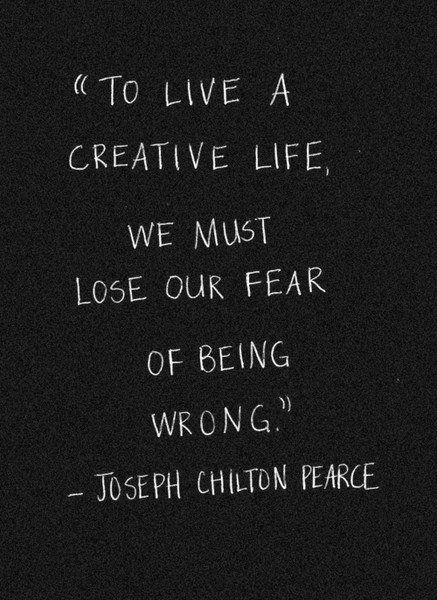“John D. Rockefeller would take regular breaks from his notoriously demanding schedule to mill about in his garden—it was his personal escape. Find your “garden” and go there often. Practice stillness, flex the solitude muscle. Be bored for at least 15 minutes per day. It’s an unlock for creativity and mindfulness.”
Sahil Bloom
“Inspiration comes on the twenty-fifth attempt, not the first. If you want to make something excellent, don’t wait for a brilliant idea to strike. Create twenty-five of what you need and one will be great. Inspiration reveals itself after you get the average ideas out of the way, not before you take the first step.”
James Clear
“Science can never win against art, and logic can never win against love. History can never win against myth, and reality is poor compared to dreams, very poor. So if you carry any idea against imagination, drop it. Because we all carry it—this age is very anti-imagination. People have been taught to be factual, realistic, empirical, and all sorts of nonsense. People should be more dreamy, more childlike, more ecstatic. People should be able to create euphoria. And only through that do you reach your original source.”
Osho, Everyday Osho (Page 249)
“A lot of the time, creativity comes from structure. When you have those parameters and structure, then within that you can be creative. If you don’t have structure, you’re just aimlessly doing stuff.”
Kobe Bryant, via Think Like A Monk (Page 132)
“Creative work needs solitude. It needs concentration, without interruptions. It needs the whole sky to fly in, and no eye watching until it comes to that certainty which it aspires to, but does not necessarily have at once. Privacy, then. A place apart––to pace, to chew pencils, to scribble and erase and scribble again.”
Mary Oliver
“I have noticed that when all the lights are on, people tend to talk about what they are doing — their outer lives. Sitting round in candlelight or firelight, people start to talk about how they are feeling – their inner lives. They speak subjectively, they argue less, there are longer pauses. To sit alone without any electric light is curiously creative. I have my best ideas at dawn or at nightfall, but not if I switch on the lights — then I start thinking about projects, deadlines, demands, and the shadows and shapes of the house become objects, not suggestions, things that need to done, not a background to thought.”
Jeanette Winterson, The Guardian
“If your plan, your idea or your art doesn’t involve any significant hurdles in moving forward, it’s probably not worth that much. If it were easy, everyone would do it. The tactic is to seek a path where you see and understand the significant hurdles that kept others away. And then dance with them. They’re not a problem, they’re a feature.”
Seth Godin, Blog
“The greatest impediment to creativity is your impatience, the almost inevitable desire to hurry up the process, express something, and make a splash.”
Robert Greene, The Daily Laws (Page 93)
“The truth is that creative activity is one that involves the entire self—our emotions, our levels of energy, our characters, and our minds. To make a discovery, to invent something that connects with the public, to fashion a work of art that is meaningful, inevitably requires time and effort. This often entails years of experimentation, various setbacks and failures, and the need to maintain a high level of focus. You must have patience and faith that what you are doing will yield something important.”
Robert Greene, The Daily Laws (Page 29)
“Over the years, I’ve learned that the first idea you have is irrelevant. It’s just a catalyst for you to get started. Then you figure out what’s wrong with it and you go through phases of denial, panic, regret. And then you finally have a better idea and the second idea is always the important one.”
Arthur van Hoff, Founders at Work
“There’s a thing that worries me sometimes when you talk about creativity because it can have this kind of feel that it’s just nice, or warm, or pleasant—it’s not. It’s vital. It’s the way we heal each other. In singing our song, in telling our story, in inviting you to say, ‘Hey, listen to me and I’ll listen to you,’ we’re starting a dialog. And when you do that this healing happens. And we come out of our corners. And we start to witness each other’s common humanity. We start to assert it. And when we do that? Really good things happen.”
Ethan Hawke, TED
“Separate the processes of creation from improving. You can’t write and edit, or sculpt and polish, or make and analyze at the same time. If you do, the editor stops the creator. While you invent, don’t select. While you sketch, don’t inspect. While you write the first draft, don’t reflect. At the start, the creator mind must be unleashed from judgement.”
Kevin Kelly, Blog
“Habits do not restrict freedom. They create it. In fact, the people who don’t have their habits handled are often the ones with the least amount of freedom. Without good financial habits, you will always be struggling for the next dollar. Without good health habits, you will always seem to be short on energy. Without good learning habits, you will always feel like you’re behind the curve. If you’re always being forced to make decisions about simple tasks—when should I work out, where do I go to write, when do I pay the bills—then you have less time for freedom. It’s only by making the fundamentals of life easier that you can create the mental space needed for free thinking and creativity.”
James Clear, Atomic Habits
“The human mind is naturally creative, constantly looking to make associations and connections between things and ideas. It wants to explore, to discover new aspects of the world, and to invent. To express this creative force is our greatest desire, and the stifling of it is the source of our misery. What kills the creative force is not age or a lack of talent, but our own spirit, our own attitude. We become too comfortable with the knowledge we have gained in our apprenticeships. We grow afraid of entertaining new ideas and the effort that this requires. To think more flexibly entails a risk—we could fail and be ridiculed. We prefer to live with familiar ideas and habits of thinking, but we pay a steep price for this: our minds go dead from the lack of challenge and novelty; we reach a limit in our field and lose control over our fate because we become replaceable.” ~ Robert Greene, Mastery



